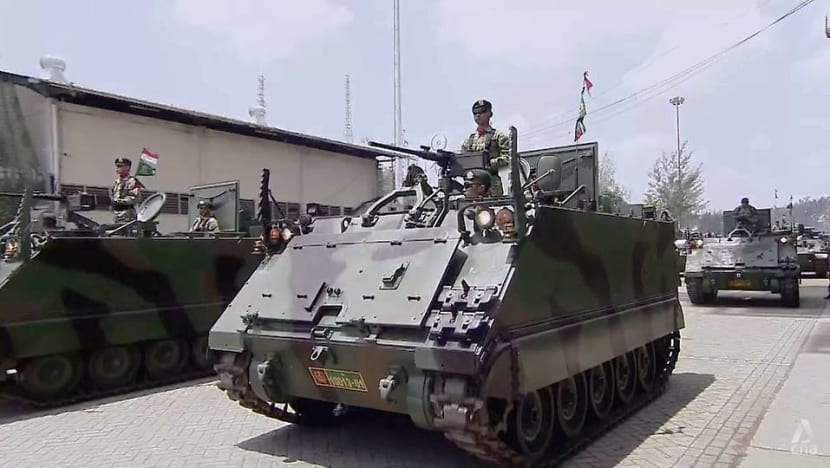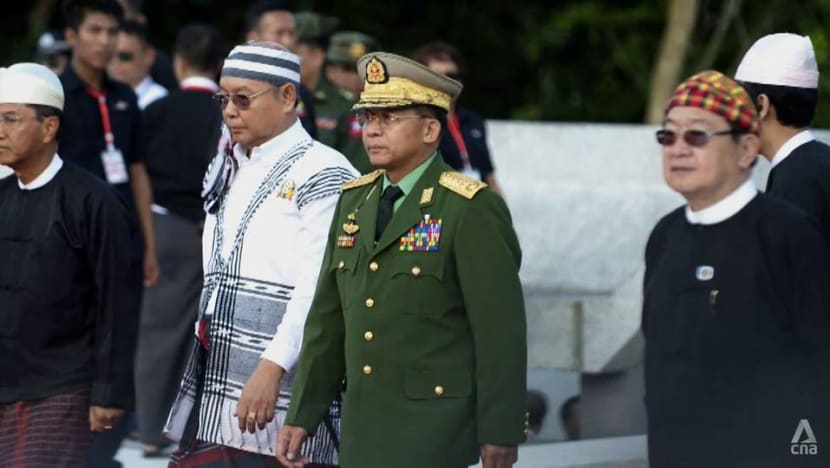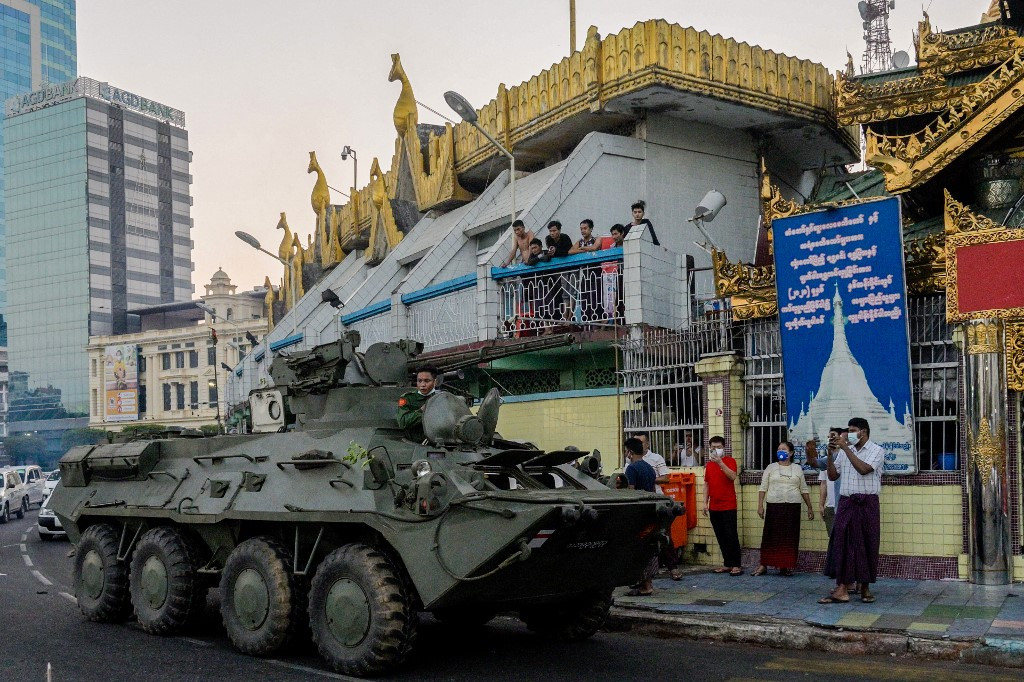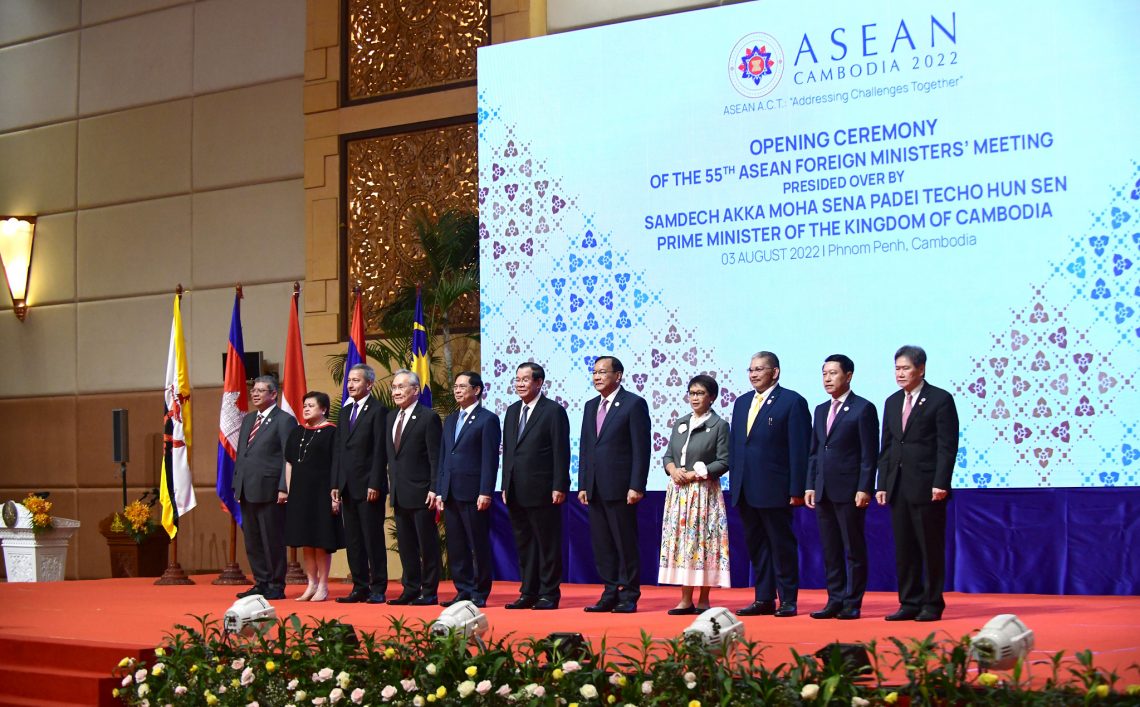Myanmar’s military leadership has repressed and persecuted violently against his own people from the February 2021 coupin a try to repress dissent and maintain control of the country.
With COVID-19 hitting the world and Russia launching military aggression in Ukraine, international attention has shifted away from Myanmar despite a year of persistent protests and civil unrest.
Indonesia, as the largest economy in Southeast Asia and president of the Association of Southeast Asian Nations (ASEAN) in 2023, needs to address the Myanmar crisis through strategic initiatives before it becomes more violent or escalates into protracted conflict.

Myanmar can go the way of Indonesia
own Indonesian military reform began in 1998after the authoritarian leader Soehartoa former general, will leave power.
The Indonesian military was forced to stay out of practical politics. Their representatives were removed from parliament. Until now, if any member of the military wanted to stand for election, he was forced to resign from the military institution.
An important point to keep in mind is that the will to change came from the army itself. A recent public opinion poll shows that the military has become the most reliable institution in the country.

Many of the Indonesian military leaders they have been educated in the West and are exposed to civil-democratic norms. Therefore, they have shown their support for the structural reform of the country.
Based on this experience, Indonesia could initiate and foster a military-to-military engagement with Myanmar, so that Myanmar can consider the example of Indonesia’s military reform.
This move could change Myanmar’s mindset about military functions and convince skeptics that having a civilian government does not mean the military will be sidelined, but rather that it can be strong in a more humane way.

What Indonesia has done
Indonesia’s efforts to address the conflict in Myanmar take the form of bilateral, regional and multilateral relations. Indonesia has carried out atraveling diplomacy» to encourage a concerted effort to deal with the conflict. Foreign Minister Retno Marsudi visited Brunei, Singapore and Thailand to gather support to promote an inclusive democratic transition in Myanmar.
At the regional level, Indonesia has persuaded ASEAN members to agree on an action plan to persuade the Myanmar junta to hold elections within a year, as promised.

Indonesia may have paid less attention to the Myanmar crisis this year being focused on the organization of a G20 summit in Bali. But the country is expected to take a greater lead in the Myanmar crisis next year, when it assumes the presidency of ASEAN. Indonesia could ask ASEAN countries to hold a special regional summit to further addressing the Myanmar crisis.
ASEAN’s approach to Myanmar
The discussions on how to deal with the Myanmar crisis have become a longstanding issue since 1988, when the military government came to power and Myanmar was not a member of ASEAN.
One approach is to isolate the Myanmar military regime. Western countries and various democratic and ethnic groups in Myanmar have supported this approach.
Another approach has been to pursue an open-door policy, encouraging investment and trade while acknowledging the military junta’s leadership in promoting liberalization. This approach, pioneered by Thailand, was supported by ASEAN members because it was in line with the “non-interference policy» of ASEAN, in which members do not meddle in each other’s internal affairs and continue to cooperate in the hope that ASEAN’s commitment will help the country gradually reform itself.
Debates on how to deal with the Myanmar crisis have become a long-running issue since 1988
This policy adheres to the legal frameworks of ASEAN, such as the ASEAN Declaration of 1967the Treaty of Friendship and Cooperation in Southeast Asia (TAC) and the ASEAN Charter.
For ASEAN, this approach takes into account existing realities that can bring about political change in a controlled and manageable way. many scholars they have claimed that he succeeded in bringing democracy back to Myanmar in 2011; however, the military coup had brought down the civilian government in February 2021. ASEAN’s open approach may have helped Myanmar return to civilian rule, but how effectively it can maintain it remains questionable.
The Geography of Myanmar’s Anti-Military Resistance Movement
However, a recent development shows that ASEAN no longer fully embraces this “non-interference” approach. The ASEAN decided not to invite to the Myanmar military junta at its 55th Summit of Foreign Ministersheld on August 3, 2022, because the country did not follow the agreed five-point consensus on democracy, good governance, respect for human rights and constitutional government.

This fact may lead Indonesia to adopt a tougher stance during its presidency. It may mean that Myanmar is cut off from ASEAN activities unless it shows more progress in achieving the five point consensus.
Addressing the Myanmar crisis will be one of the most difficult challenges for Indonesia as ASEAN president in 2023. It remains an extremely difficult path to travel, given the involvement of the world powers in the region. But Indonesia should encourage ASEAN members to address the issue by taking more decisive action.














